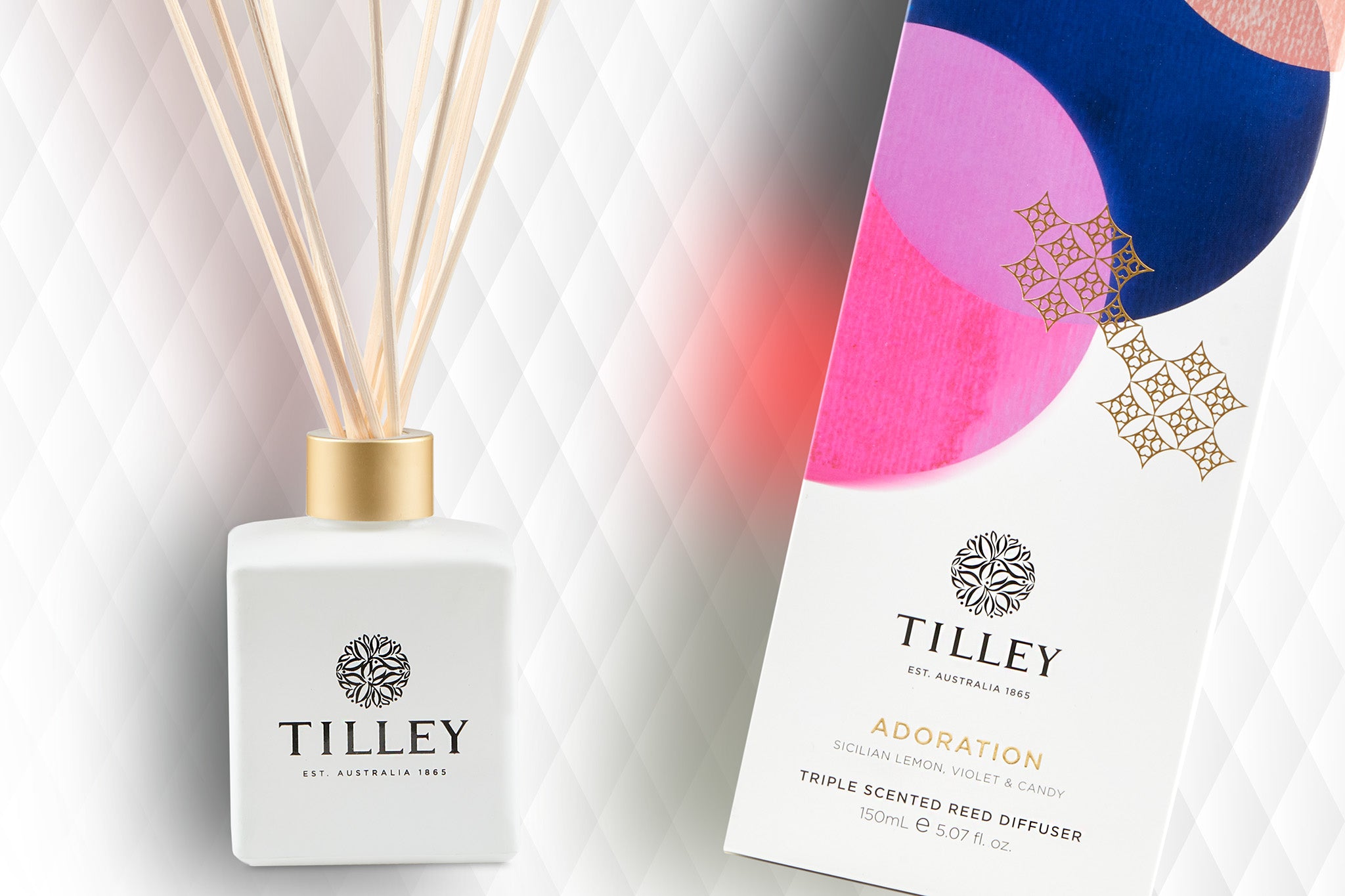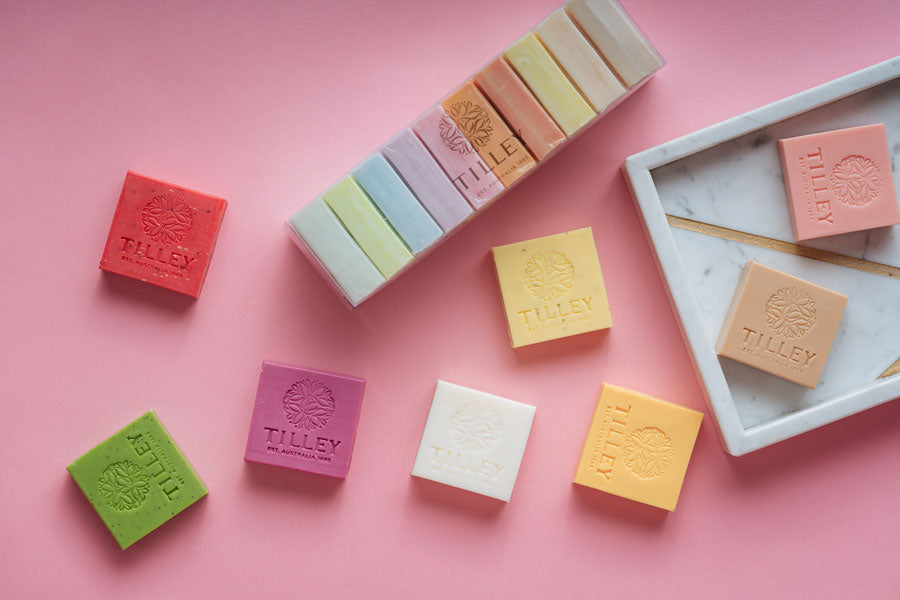FAQ's



Frequently Asked Questions.
General
Which countries are Tilley Soaps products sold in? How do I find them in stores?
- Australia: refer to online store locator, or contact Customer Service Team reception@tilleysoaps.com.au
- New Zealand: refer to online store locator, or contact New Zealand agents Mama Lulu (richie@mamalulu.co.nz)
Are Tilley Soap products Australian made?
- Yes. Tilley Soap products are proudly Australian made and owned.
Are Tilley Soap products cruelty free/tested on animals?
- Tilley Soap products are not tested on animals.
Are Tilley Soap products vegan friendly?
- Some Tilley Soaps products contain Natural Goats Milk and/or Manuka Honey. Please contact our Customer Service Team reception@tilleysoaps.com.au for further details.
Why are your online prices different to in some stores?
- Tilley Soaps has recommended retail prices, which we abide to on our website. However, some stores may wish to offer a higher or lower price at their discretion.
What is the shelf life for Tilley Soap products?
- Before opening, our liquid products have a shelf life of approx. 24 months, and soap bars have a shelf life of approx. 36 months.
Candles
How do I burn your candles safely?
- Burning instructions are provided on the labelling of all our candles. These instructions should be followed for safe use of our candles.
What are Tilley Soap candles made from?
- Tilley Soap candles are made from a premium blend of soy & vegetable wax.
What are Tilley Soap candle wicks made from?
- Tilley Soap candle wicks are made from lead-free cotton.
Why do candles tunnel/ burn unevenly?
- Candles can tunnel/burn unevenly due to air movement over the flame, caused by air conditioning, draft/breeze, or an off-center wick. We recommend always positioning your candle on a flat, stable and heat resistant surface, away from any noticeable drafts.
Why is there a black residue on the inside of my candle?
- Black residue on the inside of the candle vessel can be caused when the wick has not been trimmed properly, which causes a bigger flame and leads to soot forming.
Do I need to trim my candle wick?
- Yes. As the wax level drops the wick effectively becomes longer so we advise that you trim the wicks to approx. 7mm and ensure they're upright prior to each new burn.
Why is it advised to stop burning with 1cm of wax left?
- We suggest that you stop burning your candle at approx. 1cm wax mark, as lower than this there may not be enough wax left in the candle to absorb the heat of the flame, which can lead to glass becoming very hot and/or cracking
Soap
Can your soaps be melted down?
- Tilley Soaps are not the melt-and-pour type and are likely to burn/decompose before their melting point is reached. Moreover, inhaling the fumes liberated from our soaps upon heating is not recommended and may be harmful.
What does triple milled mean?
- Triple milled soap is passed through a milling machine of smooth stainless-steel rollers three times, producing a bar that is thoroughly mixed, and free of air and excess moisture. The results are a firm, long lasting body bar which retains its shape, and delivers a luxurious, foamy lather.
Do your soaps contain Palm Oil?
- Some Tilley Soaps contain Palm Oil; however, it comes from a sustainable and certified source.
Reed Diffusers
Why has the liquid in my Reed Diffuser changed colour?
- The fragrance diffuser solution will oxidize after it has been opened. The perfume in the diffuser interacts with oxygen which can affect its colour. This should not cause any problems with the performance.
How do I remove the plastic cap on Tilley Classic White Reed Diffusers?
- The easiest way to remove the plastic cap is unscrew the decorative silver collar. Place the bottle on a flat surface, then using a small flathead screwdriver or small spoon, insert into the middle of the cap and carefully lever upwards. This will cause the cap to pop up.
Do you sell Reed Diffuser refills?
- We do not sell diffuser refills. After several months your reed sticks may need to be replaced so we recommend purchasing a whole new set.
I spilled some Reed Diffuser liquid onto my skin, what should I do?
- Reed Diffusers contain a very high proportion of fragrance to give them a strong aroma, making them more likely to cause irritation or allergic reactions on contact with the skin when compared to other products. To avoid further skin irritations/reactions in future, we would recommend that you clean up spills using disposable rubber gloves. If some of the Reed Diffuser solution does get on your skin, you should take off any contaminated clothing, wash the affected area with soap and water, and launder any contaminated clothes before re use.
100% Pure Essential Oils
Are your Essential Oils safe to use around children?
- Yes - however as our Essential Oils are 100% pure, they are naturally very potent. Therefore, for use with young children, pets or during pregnancy, we recommend you consult a qualified Aromatherapist or health practitioner
- Diffusing safely
Diluting essential oils in a humidifier or small diffuser is a much safer way to go, though even this could be harmful for kids with asthma or other respiratory illnesses. We also recommend keeping the humidifier in a large, open room, rather than in kids’ bedrooms. - Store oils away from curious hands
Considering the potential harm of ingestion or skin contact, you should store all essential oils in a safe spot out of the reach of children. - Watch for reactions
Keep an eye out for allergic or other negative reactions to essential oils, just as you would when introducing new foods to kids. A good indicator that something is wrong is when your kid complains or says they don’t like the smell. When that happens, just stop using the oil. If the side effects are more severe, like coughing, difficulty breathing, nausea, vomiting, headache, sleepiness, seizures, or loss of consciousness, turn off the diffuser and get to a doctor. For advice, call the Poisons Information Centre on 13 11 26. - Bottom line: any and all essential oils should be treated with caution and respect.

